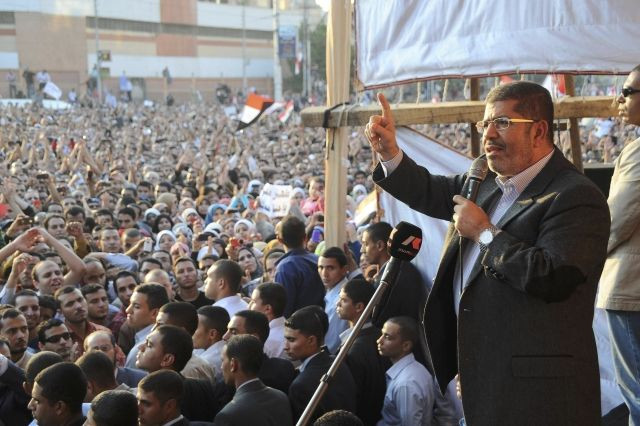Voting On Egypt’s Draft Constitution Begins Abroad

Voting on a controversial draft constitution commenced Wednesday with Egyptians living abroad casting their votes, amid protests from the liberal, secular opposition which has been trying to delay the referendum.
The state news agency reported voting had started at Egyptian embassies abroad, with more than 500,000 Egyptians expected to cast their votes in 150 countries.
The country's electoral commission announced Wednesday that the vote would take place Dec. 15 and a week later Dec. 22, each day covering a different region.
The state media said the plan to distribute the process into two days, initially set for Dec. 15, had been adopted due to the lack of judges needed to oversee the voting. Many of the designated supervisors were staying away in protest against the decision to hold a hasty referendum.
If the newly issued constitution passes the public referendum, the president's controversial decrees would be lifted.
The voting process began on the same day as the army scheduled a talk between the rival factions of the government.
Defense Minister Abdel Fattah al-Sisi said the scheduled talks, aimed at restoring national unity, would not be political in character. "We will sit together as Egyptians," he said, according to a Reuters report.
The president and his parent party, the Muslim Bortherhood, are expected to attend while the main opposition coalition said it would decide Wednesday morning whether to participate. The opposition did not attend an earlier reconciliation meeting called by Morsi last weekend.
Unrest has been brewing in Egypt for weeks over the decrees Morsi passed, granting him sweeping powers. The protests grew when the Islamists rushed the drafting of a new constitution, after liberals, journalists, farmers and Christian churches had boycotted the constituent assembly.
A new parliament will be elected after the constitution is ratified to replace the Islamist-dominated house, according to Egypt’s political timetable.
Despite the protests, which took a violent turn last week, Morsi was anxious to put the proposed constitution to public vote, as it must be in place before the national elections can be held. The elections are expected early next year.
Egypt's judiciary has been in a stand-off with Morsi ever since he assumed autocratic powers that his supporters say will cut the turbulence in democratic transitional process but outraged critics who accused him of being a dictator. Last month, Morsi stripped Egypt’s courts of the right to challenge his decrees or annul the constituent assembly until a constitution was agreed.
© Copyright IBTimes 2025. All rights reserved.






















